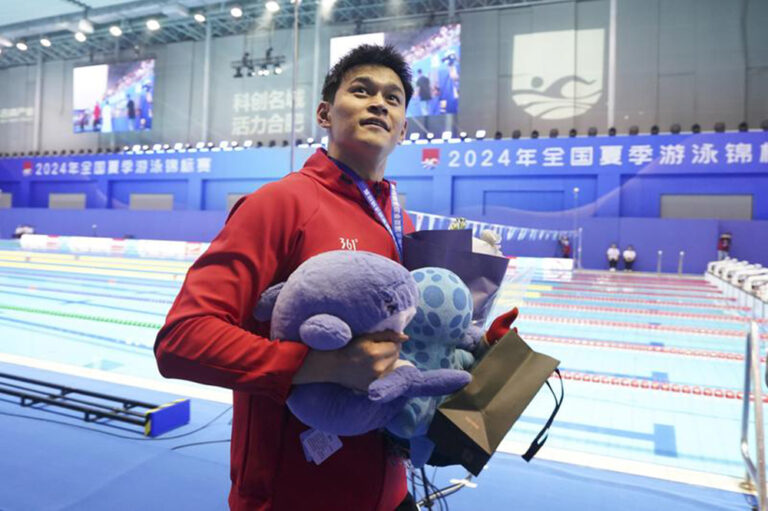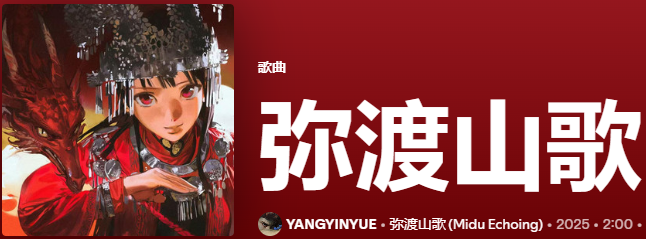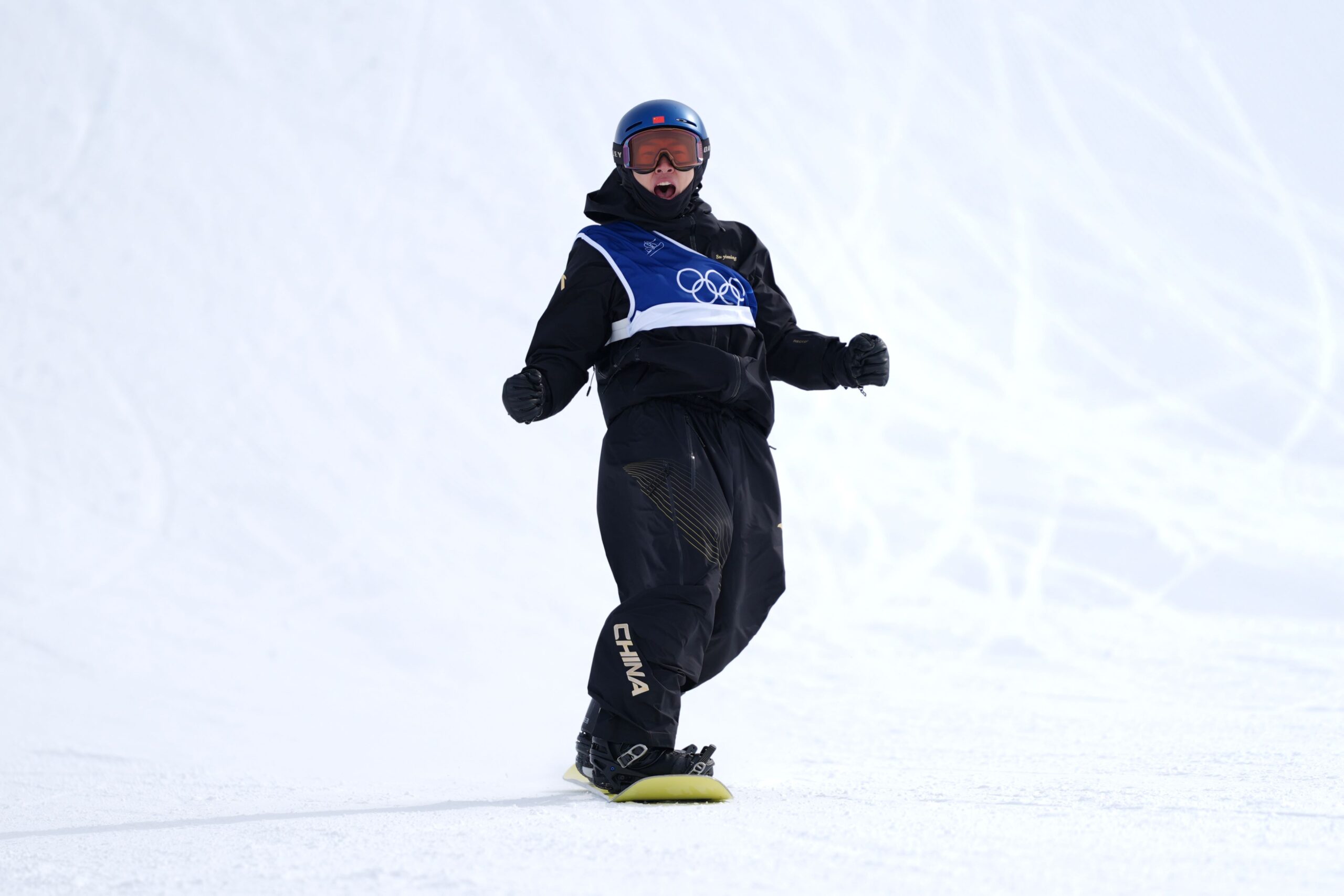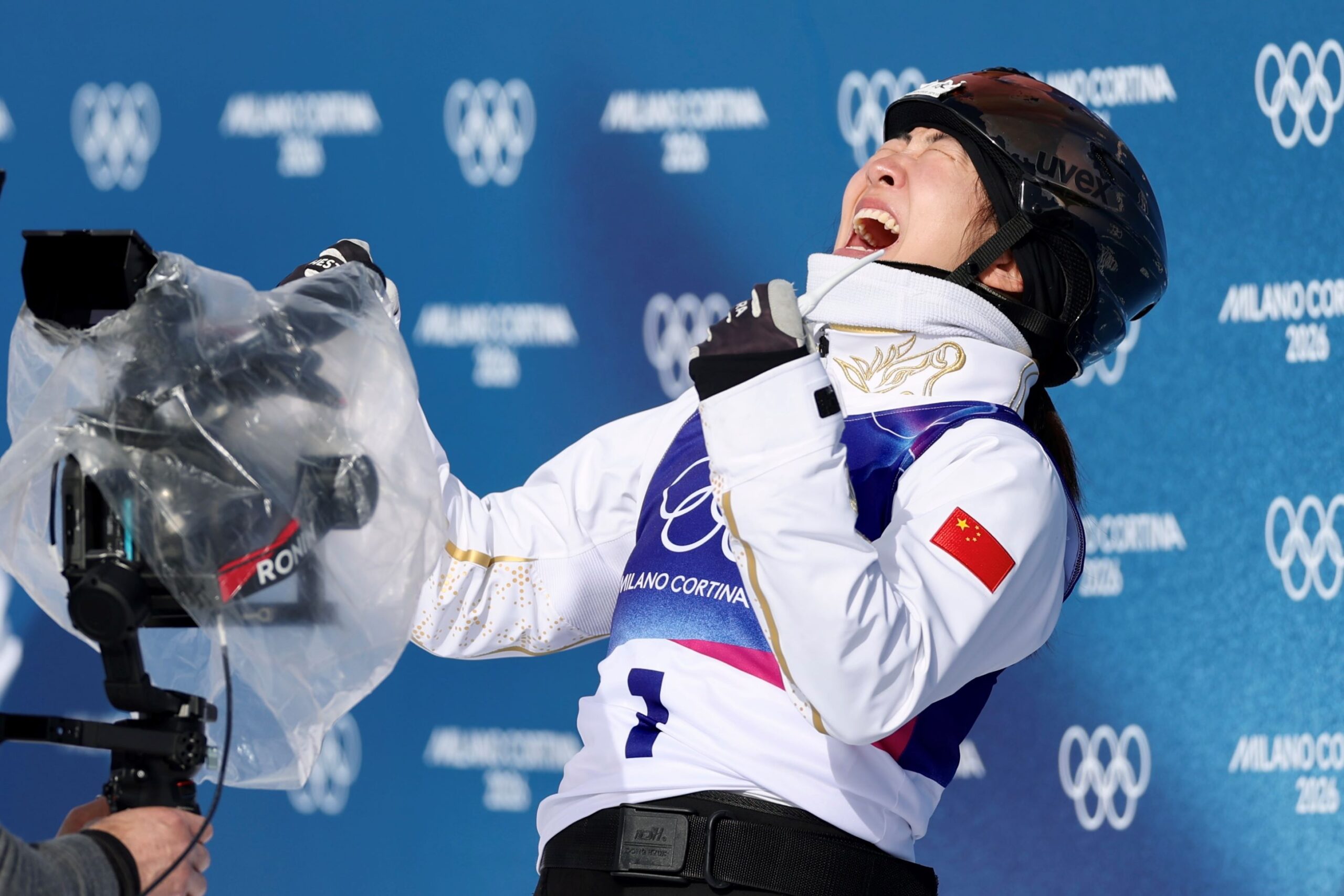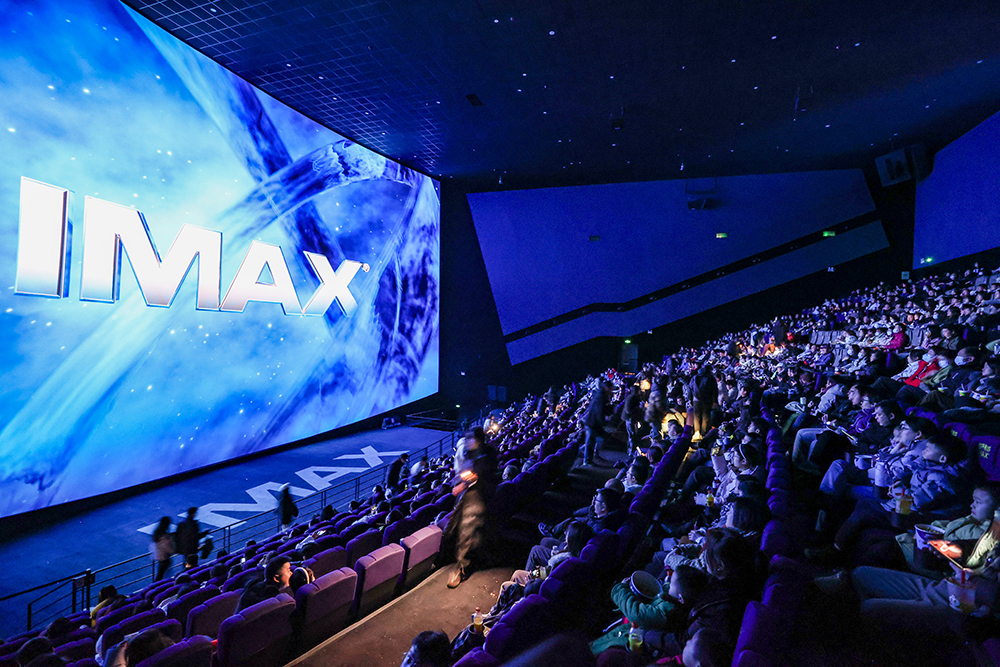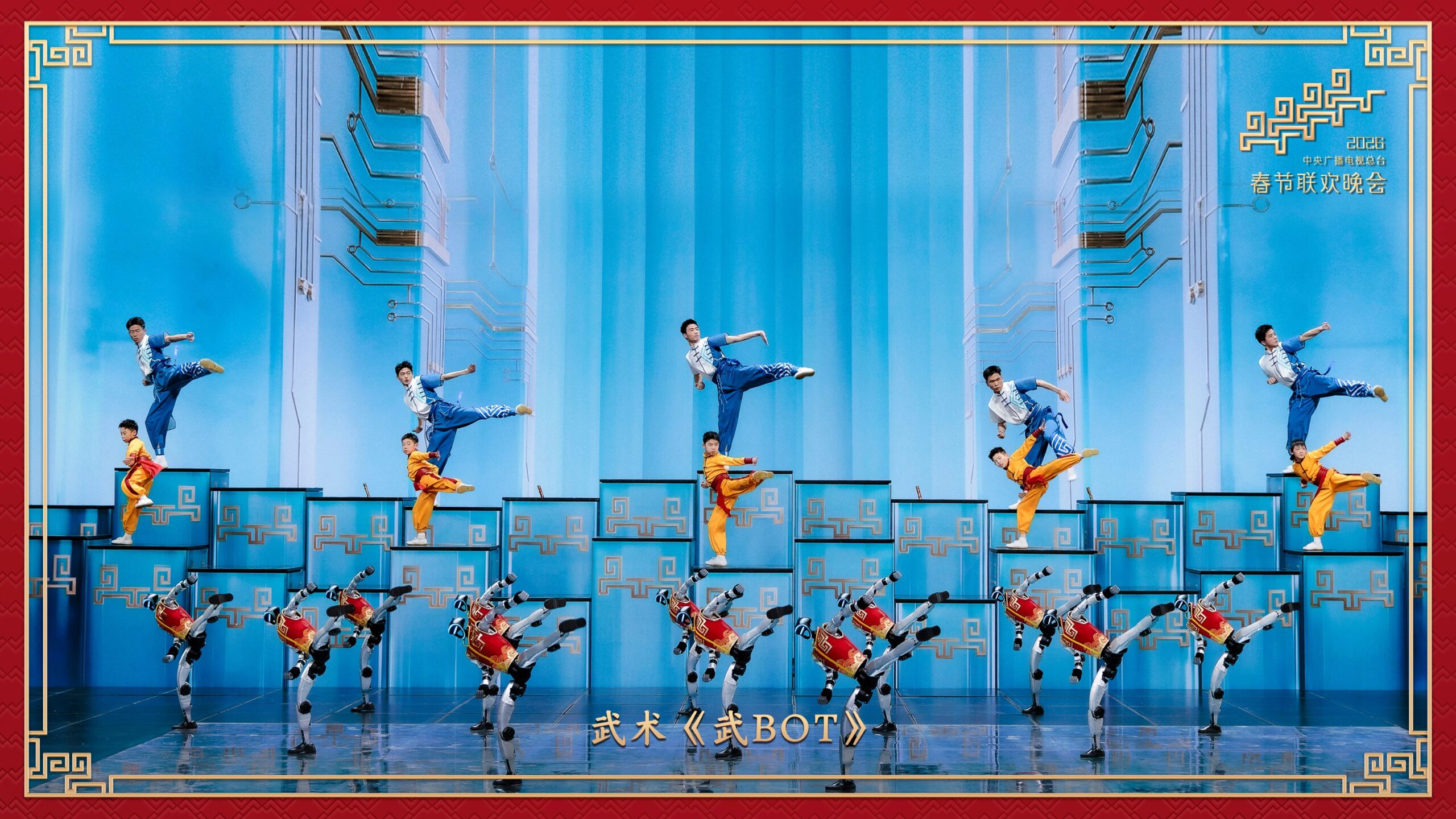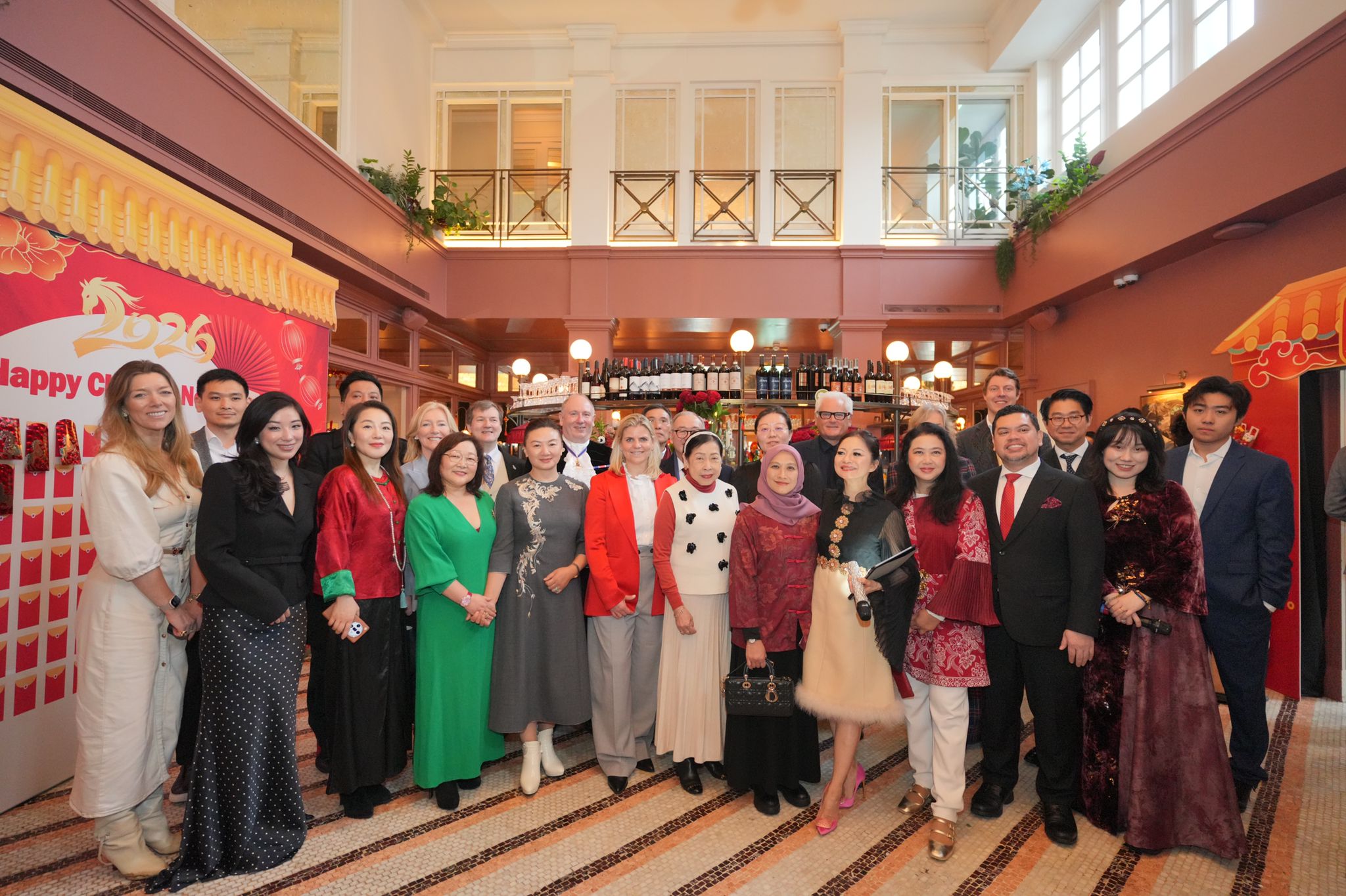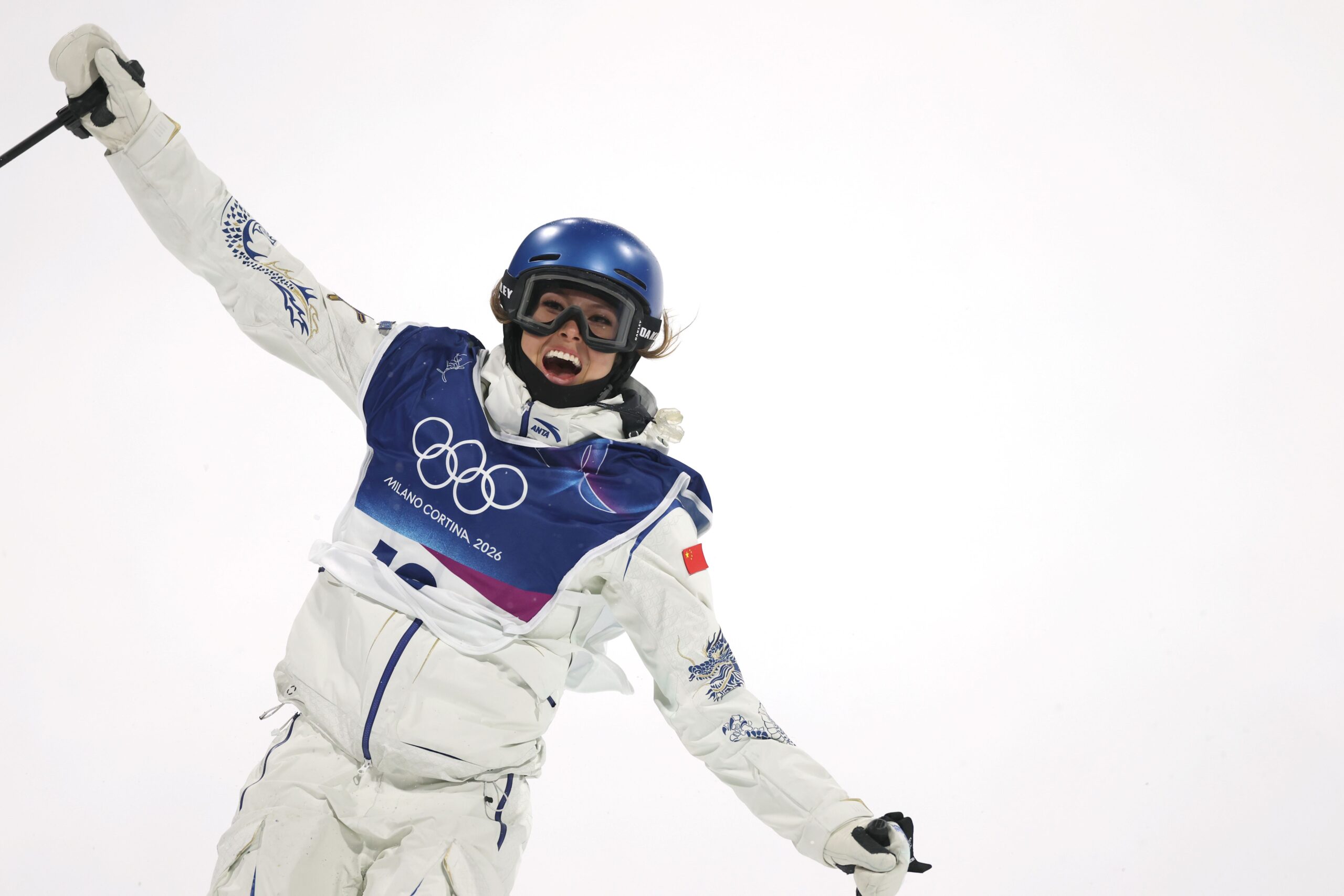Olympic swimming champion Sun Yang returns to competing after long suspension
China’s three-time Olympic gold medalist Sun Yang won the men’s 400-meter freestyle title on Aug 25, at the 2024 National Summer Swimming Championships in Hefei, east China’s Anhui Province.
Sun, representing Zhejiang Province, topped the podium in three minutes and 49.58 seconds. After returning from a 51-month suspension, the 32-year-old showed that he remains close to his past form. He led the race from the first 200 meters.
Fans were happy at Sun’s return. The topic “Sun Yang wins 400m free”, quickly dominated Chinese social media.
“I could have done better,” Sun said after the final. “It’s been four years away from competition. I have missed intensive training. I do feel rusty in controlling the tempo and I need more competitions. But it’s a good start for my comeback and I’m happy with this result.”
Sun added that he plans to compete in more events and hopes to have a better performance next year. He also expressed gratitude for his family’s support.
Sun was born in December 1991 in Zhejiang’s capital, Hangzhou. He became China’s first-ever Olympic champion in men’s swimming at London 2012. At that time, he claimed top honors in both the 400m and 1,500m freestyles.
At Rio 2016, he won the men’s 200m freestyle. He became the first-ever male swimmer to collect Olympic golds in the 200m, 400m and 1,500m freestyles.
In June 2021, a Court of Arbitration for Sport (CAS) panel announced that Sun committed anti-doping rule violations. “When an unsuccessful attempt was made to collect blood and urine samples from him at his residence on September 4-5, 2018.” The judgment added: “The panel concluded that a period of ineligibility of four years and three months (i.e. 51 months) commencing on February 28, 2020, is to be imposed on Sun Yang.”
Sun’s return to competing after his doping ban comes after Chinese swimmers have been in the spotlight following a slew of doping allegations at the Paris Olympics. The US contentiously claimed that the World Anti-Doping Agency (Wada) was covering up doping on behalf of China.
Chinese swimmers had tested positive before the Tokyo Olympics for banned substances. However, an investigation by the Chinese anti-doping organisation Chinada found it was due to contaminated meat so they faced no ban. A follow-up investigation by Wada agreed with this decision. Later on, an independent investigation of Wada’s handling of the case found that Wada did not mishandle the case or show bias towards the Chinese swimmers. Several of those athletes went on to compete at the Paris 2024 Olympics.
It is standard practice for a country’s own anti-doping agency to investigate doping.
Chinese swimmers faced drug-tested significantly more than those from other nations at the Paris Olympics. China’s 31 team members were tested an average of 21 times since January according to data from World Aquatics. Meanwhile, Australia’s 41 swimmers have undergone testing an average of four times. The U.S.’s 46swimmers have faced testing an average of six times.
This, in turn, has fuelled accusations from China that it was a conspiracy to disrupt their performance.
In a statment to the BBC, Wada head of media relations James Fitzgerald said “Certain individuals [in the US] are attempting to score political points purely on the basis that the athletes in question are Chinese.”
Written by Yi Shen, additional reporting by Xinhua, CGTN and Global Times.
If you liked this article, why not read: “You swan, he frog”: Heartbroken foreign blogger finds comfort in Chinglish goodwill messages

